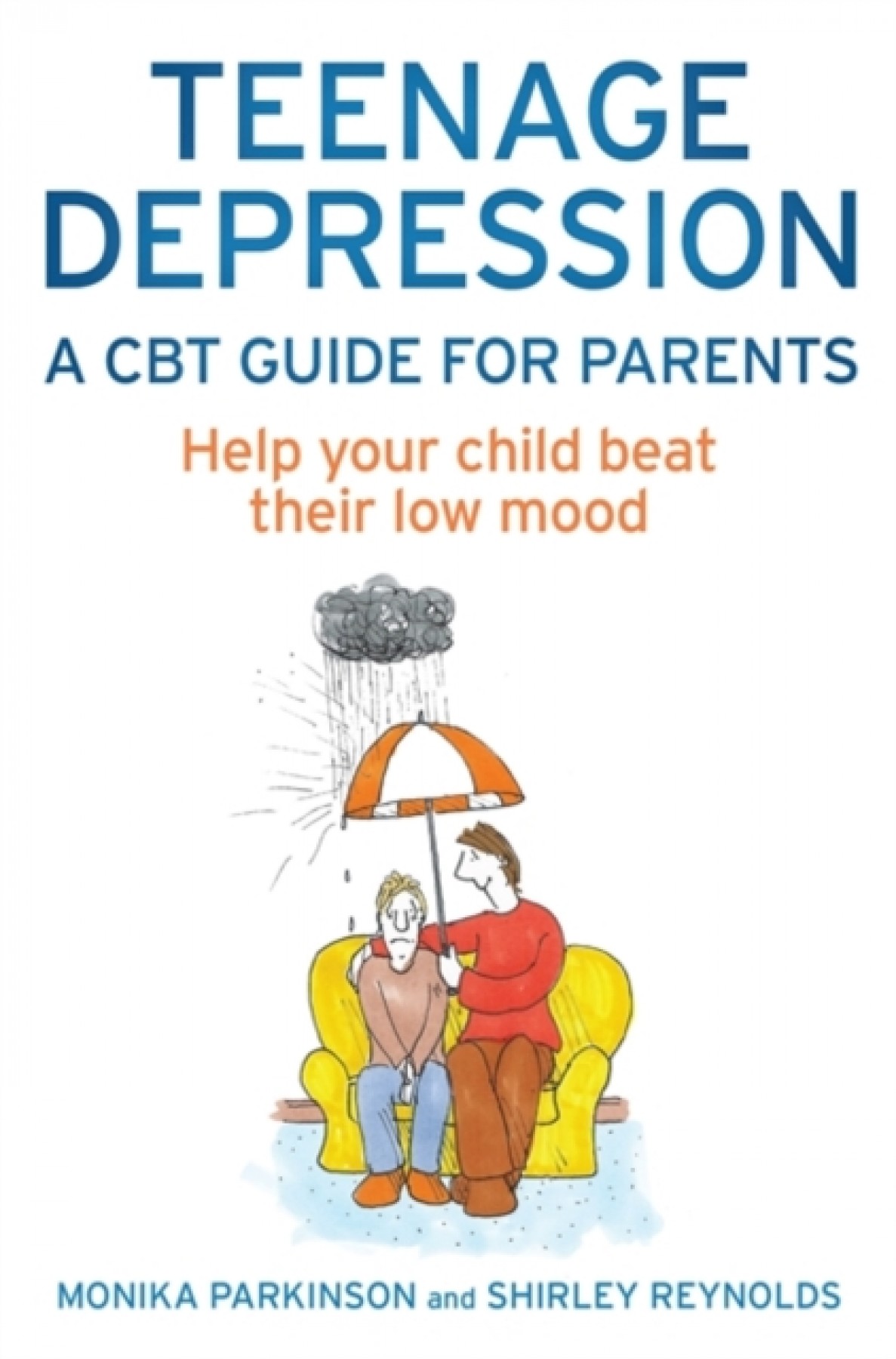Professor Shirley Reynolds and Dr Monika Parkinson have many years’ hands-on experience with young people (who are acknowledged in the introduction), and involvement in research trials aimed at investigating enhanced outcomes for child mental health problems.
The advice in the book is founded on real life examples as you follow three families applying the skills. Teenage Depression is aimed at parents, but there is also a companion book for young people, Am I depressed and what can I do about it? A CBT self-help guide for teenagers experiencing low mood and depression. Both books follow the same structure and make use of the same case studies, but Teenage Depression incorporates additional strategies for parents.
The authors make it clear that depression is a complex illness, rarely caused by one thing or event. Reynolds and Parkinson say it is more useful to instead work out what might be causing the problems going on right now. This means individuals and families have the power to do something about the problems and to make positive change.
Although the book is about Cognitive Behaviour Therapy (CBT), the first five chapters cover a raft of other useful topics. For example, information on depression with a checklists of symptoms, steps parents can take now, how to formulate a safety plan, examples of possible wording for bringing up the topic with their teen, and preparing together to talk to a GP.
The authors encourage parents to help teens prioritise the basics (sleeping, eating, and exercise) to build a solid foundation for wellbeing. Also “doing more to feel better”, which may feel difficult at first, but becoming more involved in life’s small details can have a significant positive impact on mood, especially when you start adding up all the small activities and achievements. All goal setting is done together with the lead from the young person, ensuring any goals are linked to values they hold dear.
The second half of Teenage Depression outlines the basics of CBT and the authors insist it is a tool not just for the young person, but also the parents, who are often not aware of their own negative thought cycles. Using an example comparing the thought cycle of a parent and child, you can clearly see how frustration and misunderstandings can block communication and opportunities to support.
As a mother in one of the case studies says, parents need to be prepared to be on this journey together with their teen. I certainly feel this book provides parents with good practical tools to support their child during their recovery period through which both parties will learn and grow. CBT is a proven therapy and, even though it is a simple concept, it can be incredibly effective.
Reviewed by Kim Higginson, Information Resources Specialist at the Mental Health Foundation
I Need Help Now
Help for you or someone important to you
More

